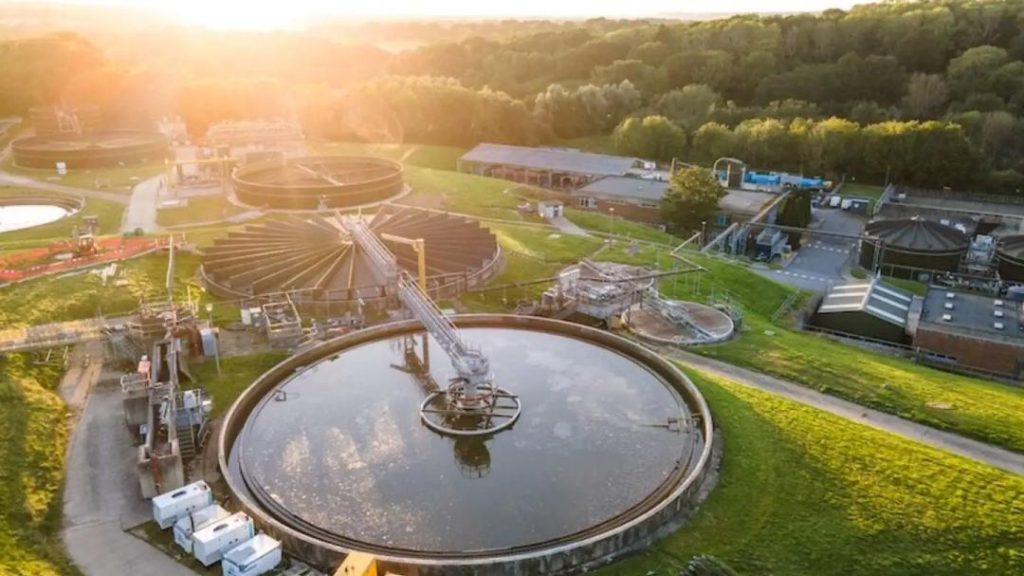
Title: Trials to Turn Sewage into Hydrogen Fuel, Graphene Underway in UK
In a groundbreaking initiative, a landmark trial is underway in Manchester, England, where sewage sludge is being converted into both hydrogen fuel and graphene. This innovative technology has the potential to significantly reduce the carbon footprint of the wastewater treatment process, making it an exciting development in the pursuit of a more sustainable future.
The trial is a collaboration between United Utilities, a leading water and wastewater services company, and Levidian, a pioneering technology firm specializing in biogas upgrading and carbon capture. By harnessing the power of cutting-edge technology, the project aims to transform the by-product of sewage treatment – sludge – into a valuable resource that can be used to produce both hydrogen fuel and graphene.
Sewage sludge, a by-product of the wastewater treatment process, is typically disposed of through landfilling, incineration, or agricultural use. However, this trial seeks to revolutionize the way we manage sludge by converting it into a usable resource. The process begins with the production of biogas, a mixture of methane and carbon dioxide, through anaerobic digestion of the sludge. This biogas is then upgraded to produce pure methane, which can be used as a renewable energy source or converted into hydrogen fuel.
Hydrogen fuel is an attractive alternative to traditional fossil fuels, offering zero greenhouse gas emissions when burned. It has the potential to play a significant role in the transition to a low-carbon economy, particularly in the transportation sector. The production of hydrogen fuel from sewage sludge would not only reduce the carbon footprint of the wastewater treatment process but also provide a cleaner alternative for powering vehicles.
Graphene, another by-product of the process, is a highly sought-after material known for its exceptional strength, conductivity, and thermal properties. Its potential applications are vast, ranging from energy storage and electronics to medical devices and construction materials. The production of graphene from sewage sludge would not only reduce waste but also provide a valuable resource for industries that rely on this material.
The Manchester trial is a significant step forward in the development of this technology, which has the potential to revolutionize the way we manage sewage sludge and produce renewable energy. United Utilities and Levidian are working together to optimize the process, ensuring that the technology is scalable, efficient, and cost-effective.
The implications of this trial are far-reaching, with potential applications extending beyond the wastewater treatment sector. The production of hydrogen fuel and graphene from sewage sludge could be replicated in other industries, such as agriculture, food processing, and even space exploration.
In conclusion, the trials underway in Manchester to turn sewage sludge into hydrogen fuel and graphene are a landmark development in the pursuit of a more sustainable future. This innovative technology has the potential to reduce the carbon footprint of the wastewater treatment process, provide a cleaner alternative for powering vehicles, and produce a valuable resource for industries that rely on graphene. As the world continues to grapple with the challenges of climate change and energy scarcity, initiatives like this trial serve as a beacon of hope for a more sustainable tomorrow.






